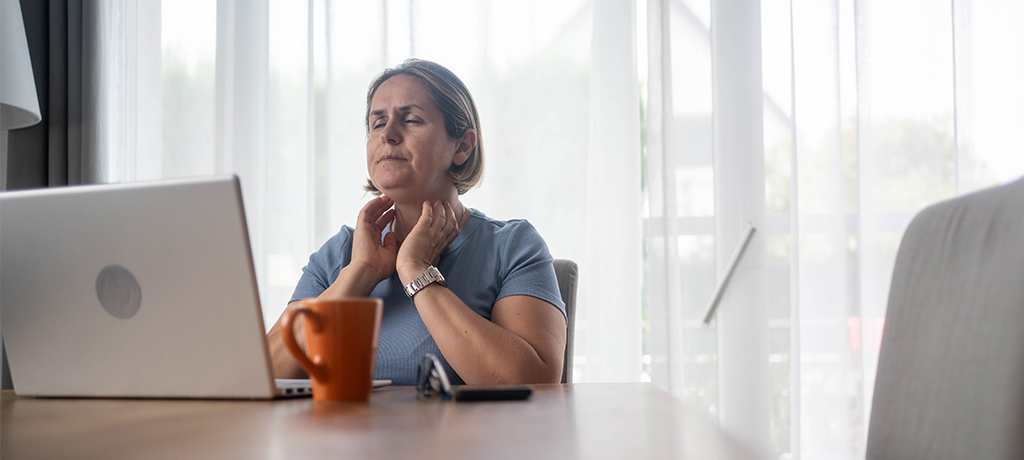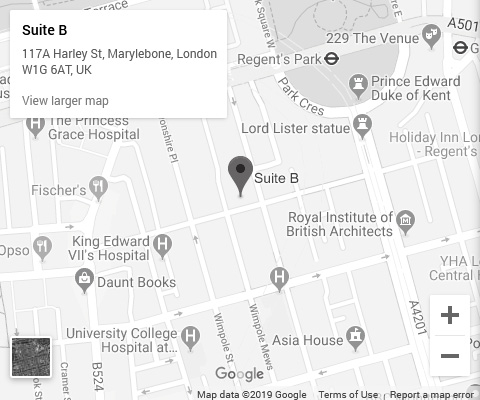
Heavy periods – also known as menorrhagia – are more than just an inconvenience. They can disrupt your daily life, leaving you feeling exhausted, anxious, and even isolated. Many women in London and across the UK experience heavy menstrual bleeding at some point, yet far too often, they hesitate to seek help. Whether it’s due to embarrassment, thinking it’s “just part of being a woman”, or simply not knowing what’s normal, this delay can lead to unnecessary suffering. But here’s the good news: there are solutions available through both the and private healthcare systems. If you’re unsure whether your symptoms warrant medical attention, read on. This guide will walk you through everything from identifying a heavy period to understanding treatment options – and most importantly, when to see a doctor.
What is Considered a Heavy Period?
Let’s start with the basics: how do you know if your period is heavier than usual? While everyone’s flow varies, certain signs indicate that something might be off. For example, soaking through one or more sanitary pads or tampons every hour for several hours in a row is a red flag. Similarly, needing to double up on protection (like wearing both a pad and a tampon) suggests excessive bleeding. Bleeding that lasts longer than seven days is also considered abnormal by medical standards.
A typical menstrual cycle involves moderate flow lasting three to five days, but if you find yourself changing pads frequently during the night, flooding unexpectedly, or passing large blood clots (think golf ball-sized), it’s time to pay attention. These symptoms aren’t just uncomfortable – they could signal underlying health issues that need addressing.
Why Does My Period Get Heavier Suddenly?
If your once-manageable periods have suddenly become overwhelming, don’t panic – but don’t ignore it either. There are several potential causes behind a sudden increase in menstrual flow:
- Hormonal Imbalance: Fluctuations in hormones like oestrogen and progesterone can throw your cycle out of whack. Conditions like polycystic ovary syndrome (PCOS) or thyroid disorders often play a role.
- Fibroids and Polyps: Non-cancerous growths in or around the uterus can cause heavier bleeding. Fibroids, in particular, are common among women in their 30s and 40s.
- Endometriosis: This condition occurs when tissue similar to the lining inside the uterus grows outside of it, leading to painful and heavy periods.
- Perimenopause: As hormone levels fluctuate before menopause, periods can become irregular and heavier.
- Underlying Health Issues: Conditions such as clotting disorders or pelvic inflammatory disease may contribute to abnormally heavy bleeding.
Understanding why your body is behaving differently is key to finding relief.
When to See a Doctor for Heavy Periods
So, when exactly should you pick up the phone and call your GP? Here are some key red flags:
- Your periods interfere with daily activities or sleep.
- You pass large clots regularly.
- You experience severe pain alongside heavy bleeding.
- You feel unusually fatigued or dizzy.
In the UK, GPs take heavy menstrual bleeding seriously and can refer you for further investigation if needed. During your appointment, expect questions about your cycle length, flow intensity, and any associated symptoms. Depending on your situation, they may recommend tests or refer you to a specialist. Remember, there’s no shame in seeking help – it’s better to address the issue early rather than wait until it worsens.
Book a Consultation Today
Don’t ignore heavy periods - get professional advice from a trusted gynaecologist. Book your appointment now for personalised care.
Heavy Periods and Tiredness: Could It Be Anaemia?
One common consequence of heavy periods is iron-deficiency anaemia. When you lose significant amounts of blood each month, your body struggles to produce enough red blood cells to carry oxygen efficiently. This can leave you feeling constantly tired, dizzy, or short of breath – even after a full night’s sleep. Other symptoms include pale skin, cold hands and feet, and difficulty concentrating.
If you suspect anaemia, ask your GP for a simple blood test called a Full Blood Count (FBC). Early diagnosis allows for timely treatment, which may involve dietary changes, iron supplements, or intravenous iron therapy in severe cases. Don’t dismiss persistent fatigue as “just part of having a busy life” – it could be your body signalling for help.
Investigations and Tests for Heavy Menstrual Bleeding in the UK
Once you’ve consulted your GP, they’ll likely arrange a series of tests to pinpoint the cause of your heavy periods. These typically include:
- Blood Tests: To check for anaemia, thyroid function, and clotting disorders.
- Ultrasound Scan: A non-invasive imaging test to examine the uterus and ovaries for abnormalities like fibroids or cysts.
- Hysteroscopy: In some cases, a small camera is inserted into the uterus to get a closer look at its lining.
During your initial GP appointment, be prepared to discuss your symptoms in detail. Keeping a menstrual diary tracking your cycle length, flow intensity, and any accompanying symptoms can provide valuable insights for your doctor.
Treatment for Heavy Periods Offered by the and Private Clinics
The good news is that effective treatments are available, ranging from medications to surgical interventions. The follows guidelines set by NICE (National Institute for Health and Care Excellence), recommending the following options:
- Medication: Tranexamic acid helps reduce bleeding, while NSAIDs ease pain. Hormonal treatments like the combined oral contraceptive pill or progestogen-only methods regulate cycles.
- LNG-IUS (Coil): Often recommended as a first-line treatment, this intrauterine system releases a hormone that thins the uterine lining, reducing flow significantly.
- Surgical Options: Procedures like endometrial ablation remove the uterine lining, while myomectomy targets fibroids. In extreme cases, a hysterectomy (removal of the uterus) may be considered.
Private clinics offer faster access to specialists and advanced treatments, though costs can add up. Discuss your preferences with your GP to determine the best pathway for you.
Urgent Signs of Heavy Bleeding – When to Go to Hospital
While most cases of heavy periods aren’t emergencies, certain symptoms require immediate care. Seek urgent medical attention if you experience:
- Sudden, uncontrollable flooding.
- Passing very large clots rapidly.
- Fainting spells or extreme dizziness.
- Severe abdominal pain unrelieved by over-the-counter painkillers.
These signs could indicate significant blood loss or another serious condition requiring prompt intervention.
Self-Help Tips While Waiting to See a Doctor
If you’re waiting for an appointment, there are steps you can take to manage your symptoms:
- Track Your Cycle: Use apps or a notebook to monitor patterns in your flow and identify triggers.
- Eat Iron-Rich Foods: Incorporate spinach, red meat, lentils, and fortified cereals into your diet to combat fatigue.
- Choose Suitable Products: Consider menstrual cups or reusable pads designed for heavy flows.
- Prioritise Rest and Hydration: Listen to your body and give it the care it needs during this time.
Conclusion
Heavy periods are more than just a nuisance – they’re a legitimate health concern that deserves attention. By recognising the signs of abnormal bleeding, understanding possible causes, and seeking timely medical advice, you can regain control over your life. Remember, ignoring symptoms won’t make them go away; instead, it risks worsening your condition. So, if you notice any of the warning signs discussed here, don’t hesitate to book an appointment with your GP or a specialist. Your health matters, and support is just a consultation away.






-in-the-UK.jpg)

